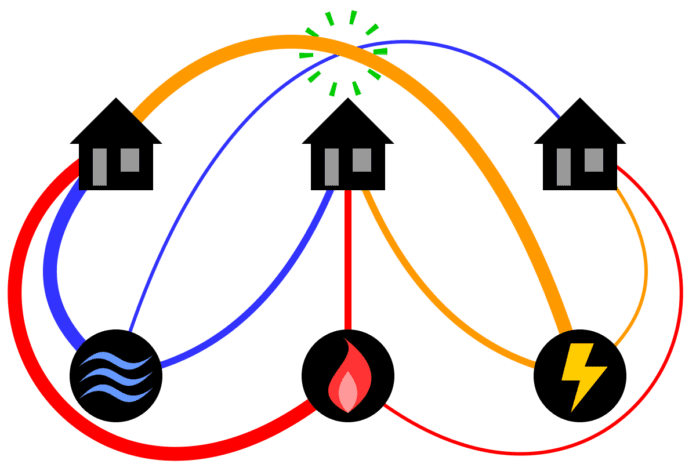Kwasi Alfred Addo Kwarteng (born May 26, 1975) is a British Conservative politician who has served as Secretary of State for Business, Energy, and Industrial Strategy since 2021. Since 2010, he has served as the Member of Parliament (MP) for Spelthorne.
Following the retirement of Suella Braverman, Kwarteng was named Under-Secretary of State at the Department for Exiting the European Union (DExEU) on November 16, 2018. Following Boris Johnson’s election as Prime Minister in July 2019, Kwarteng was appointed to Minister of State for Business, Energy, and Clean Growth, with the responsibility of attending Cabinet meetings.
Due to a disastrous combination of circumstances, the world seems to have plummeted into a global energy crisis – something that was left to Kwarteng to manage. Dangerous weather, panic buying and a ‘windless summer’ resulted in Britain finding itself in the middle of an energy crisis.
Storms in other countries where we source some of our energy resulted in damage to infrastructure, slowing energy supply. Rumour got around that, due to Brexit and its effect on our fleet of lorry drivers, there would be a fuel shortage (which, at the time, there wasn’t). In typical British style, we rushed to the petrol stations and fueled up cars and tanks, creating a fuel shortage of our own accord; a self-destructive MO that Britain seems to have embodied when panicking. Additionally, around 24% of our energy is wind-generated as part of our trajectory towards carbon-neutral 2050, which meant that the windless summer we experienced in 2021 took a toll on our capacity to generate wind power. Britain lacks coal back supply; definitely not enough to rely on to compensate for the lack of wind power. Oil prices have risen as a result of the dry summer and British and German issues obtaining Russian gas. These price hikes will soon affect Australia, which imports 80% of its gasoline, diesel, and jet fuel. OPEC+ (OPEC and a group of oil producers led by Russia) has agreed to increase output, but only in small increments. Gas and oil prices will fall if and when Britain and Germany address their gas supply difficulties with Russia, which might happen by mid-2022.
The crisis shows that the transition to renewable energy will take longer and be more difficult than anticipated. It will cast a pall over the United Nations Climate Change Conference (COP26), which begins on October 31 in Glasgow.
This catalyst of events has resulted in a global energy shortage, forcing many suppliers into liquidation and energy bills to soar.
So, this leaves Kwarteng to manage the collateral damage unfolding.
After an unusual battle with the Treasury over support for enterprises affected by the current energy crisis, No 10 has openly backed Kwasi Kwarteng, the business secretary. It comes after Mr Kwarteng told broadcasters on Sunday that he was in negotiations with Rishi Sunak’s department and the business to figure out how to help the industry get through the crisis, provoking a sharp reprimand from the Treasury.
“As you might expect, BEIS (Department for Business, Energy and Industrial Strategy) ministers are working across government, including with the Treasury, on this critical subject, the issues that industry is currently facing in light of global gas prices, and that will continue,” they added.
The two cabinet ministers “continue to work extremely closely together, as the public would expect,” according to the spokeswoman.
Mr Kwarteng and Mr Sunak were both “focused” on the difficulties posed by growing global energy prices, according to the security minister. Labour also accused the administration of “squabbling amongst themselves.”
On Monday, one-on-one talks between the government and industry continued, with manufacturing industries like paper, steel, and ceramics requesting an energy price cap to avoid facility closures. Mr Kwarteng said over the weekend that he believes the lights would stay on this winter, but that the government is “not in the bailout business.”
The comments from the government leave the future of the energy sector as uncertain as before. As the winter months approach and peoples’ usage increases, the strain on already over-stretched suppliers is looking to only get worse. Kwarteng has not been left with an enviable job to try and manage the energy crisis in the country, though many suppliers are hoping the front currently being put on by the government of ‘not bailing out’ those affected by the shortages will change as the busiest season approaches for UK energy suppliers.
For more information about this post and how Energy Solutions can help with your Electricity, Gas, or Water, click on the links, or check out the contact details at the bottom of the page.
Help keep news FREE for our readers
Supporting your local community newspaper/online news outlet is crucial now more than ever. If you believe in independent journalism, then consider making a valuable contribution by making a one-time or monthly donation. We operate in rural areas where providing unbiased news can be challenging. Read More About Supporting The West Wales Chronicle


























